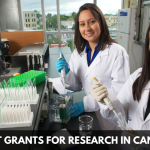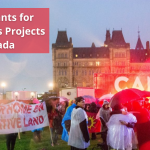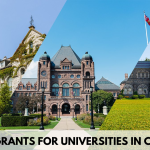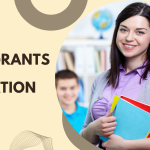The Transition Accelerator is searching for researchers from all over the country interested in creating transformative routes to achieve net-zero greenhouse gas emissions. To that end, the organization will be giving out small grants to fund pathway scoping studies. They’re looking for projects to help identify credible, compelling, and capable paths across the country. These can have a local, sub-regional, or regional scope and should be based on the Accelerator’s paths methodology.
Although there is no formal application, applicants must submit a brief project concept by Monday, May 2, 2022.
The Transition Accelerator is a pan-Canadian group dedicated to achieving net-zero greenhouse gas emissions by 2050 by bringing positive, revolutionary system improvements to Canada. The Accelerator accomplishes this by leveraging existing economic, social, and technical disruptions that affect many industries and areas. It functions as a catalyst, bringing together innovators, advanced industry, researchers, and critical stakeholders to form collaborative teams that help Canada move on credible, compelling, and competent paths to a stronger future.
Eligibility
Applicants must be connected with a university, research institute, or think tank in Canada. Investigators from multiple institutions may be involved in a single application. The primary investigator must not have previously received Transition Accelerator support. Societal partners may be involved in projects.
Financial Support
Up to three ideas will be chosen, and each will receive a maximum of $20,000 in funding. These scoping studies are viewed as a starting point for a long-term engagement with the Transition Accelerator to create novel paths entirely. The Accelerator will be willing to collaborate with teams participating in successful projects to seek long-term funding for more significant initiatives. Successful grantees may combine the Accelerator’s funding with Mitacs support if eligible.
Principles of the Proposal
Proposals that use The Transition Accelerator methodology in domains that fit within or intersect with our existing goals (building decarbonization, electric vehicle market penetration, electrification, grid integration, and Canada’s hydrogen economy) are welcome.
Even though proposals in domains not related to existing priorities should be in areas that:
- Possess the potential to result in significant GHG reductions;
- Face additional social and economic issues/roadblocks; and
- Have willing partners and change agents.
Criteria for Evaluation
The following primary factors will be used to evaluate applications:
- Relevance to the net-zero Transition Accelerator mission
- Participation in the routing methodology
- Possibility of a significant reduction in GHG emissions (scaling-up)
- Possibility of additional societal benefits (economic, social, environmental, etc.)
- Identifying possible social partners who are interested in working on pathway development
- The proposal’s overall quality.
One Transition Accelerator board member and two Transition Accelerator Research Directors will make up the selection committee. The initiatives that will be chosen will be those that are deemed to have the highest potential for good effect.
Application Requirments
There isn’t a form to fill out. The following elements should be included in proposals:
1. A project summary (maximum of four pages) that addresses the following points:
- A comprehensive description of the problem and its potential to significantly reduce GHG.
- An understanding of viable remedies.
- The project’s goals
- How the paths technique will be used in this project
- Scalability potential
- If appropriate, determine the involvement (i.e., finance, research support, etc.) of the project’s partner(s) and change agent(s).
- The project’s timeline
2. The applicants’ curriculum vitae (max two pages)
3. If relevant, a letter of support from the change partner(s)/agent(s).
Submission Guidelines
- [email protected] is the address to send files to.
- All files must be supplied in PDF format.
- It is advised that only one file containing all requested items be supplied; file items must be clearly and consistently identified.
- All text should be in 11-point Ariel font, single-spaced.
- The proposal can be written in either English or French.
Application Deadline: Monday, May 2, 2022, is the deadline for applying.








Leave a Reply